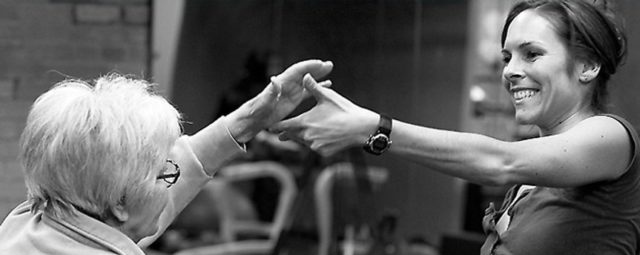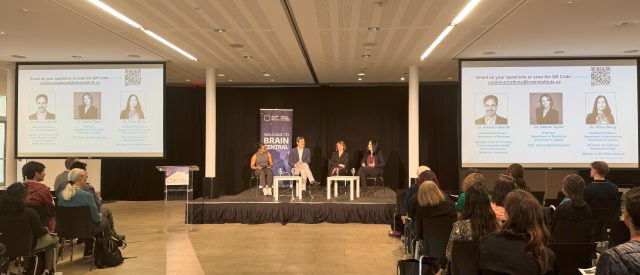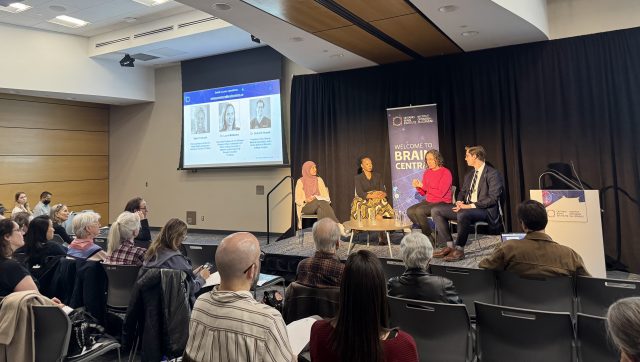We often think of physical activity contributing only to physical fitness – but there is strong evidence to support that movement benefits, protects, and sustains our cognitive fitness as well. Movement in all forms has profound impacts on our brains across our lifespan, from improving mental health to reducing risk of dementia, and more.
In May 2021, Ontario Brain Institute (OBI) hosted a Public Talk as part of the Wellness Series, “Finding Meaning in Movement” – discussing how integrating small changes in movement each day is an investment in your brain health for years to come.
Panelists included Sarah Robichaud, Executive Director and Founder of Dancing with Parkinson’s, Dr. Laura Middleton, Associate Professor, Associate Professor at the University of Waterloo’s Department of Kinesiology, Dr. Patrick Jachyra – A post-doctoral fellow at the Azrieli Adult Neurodevelopmental Centre, CAMH, examining the interconnections between mental health and physical activity among individuals diagnosed with developmental disorders, and Dr. P. David Howe – Medical Anthropologist and the Dr. Frank J. Hayden Endowed Chair in Sport and Social Impact at Western University’s School of Kinesiology. Joyce Barretto, a member of the OBI Board of Directors and CAO at Health Shared Services Ontario, opened up the event which was moderated by Wency Leung, Health Reporter with the Globe and Mail.
Link between movement and cognitive health
Dr. Laura Middleton shared the history of research around movement and brain health, highlighting studies that have shown the beneficial effects of physical activity on cognitive abilities. Over the last 20 years, a number of these research initiatives have reported consistent findings indicating those who were more physically active had a 30 to 40 per cent reduction in the risk of getting dementia – including Alzheimer’s disease, in comparison to those who were less active. Every step counts so check out the newly updated ‘It’s Time to Get Active! How Healthy Active Living Impacts Dementia’ toolkit.
Enhancing our mental health
For many, the benefits of physical activity are perceived to only happen with intense exercise – a belief that Dr. Patrick Jachyra is looking to diffuse. “Even a little bit of movement that we can integrate each day gives us a sense of structure, of routine, of predictability,” says Dr. Jachyra. In addition to that boost in confidence, there is also the scientific evidence that movement decreases our stress hormones – which has a dramatic impact on our mood and mindset.
Social connectivity and barriers to inclusion
Panelists also focused on the importance of social connectivity and how pairing that connectivity with physical activity can amplify the benefits of both. Sarah Robichaud, through her work with Dancing with Parkinson’s, shared examples of the relationships established through her program that supports seniors who are often isolated not only due to their disease, but also more recently due to the pandemic. The program was able to move to a virtual platform, where after 20 minutes of dancing, the seniors would come together online and share stories from across the country.
The challenge, cautions Dr. P. David Howe, is overcoming the barriers to accessibility to sport and physical activity – barriers that many within the disability community face. “Physical activity can be another form of social control,” says Dr. Howe. “Where people with physical or cognitive disabilities may not have access. We need to take the opportunity to celebrate diversity.”
Dr. Middleton agrees – noting that inclusion isn’t just a nice thing to do, it’s necessary – everyone has a right to equal participation.
To enjoy the full discussion, you can watch the video here: OBI Public Talks – The Wellness Series: Finding Meaning in Movement – YouTube



